Treatment For First Degree Heart Block
Treatment for first degree heart block. The severity of the conduction abnormality is described in degrees. Medication for abnormal heart rhythms such as disopyramide medications for high blood pressure such as beta blockers calcium channel blockers or clonidine digoxin a medication used to treat heart failure. Sometimes a pacemaker is implanted to treat second and third-degree heart block.
With third-degree heart block you will most likely need a. What are the complications of first-degree heart block. For patients with marked first-degree AV block PR interval 300 msec however.
Heart block normally only needs to be treated if its causing symptoms. Treatment Options for Heart Block First degree heart block does not normally need treating. Your healthcare provider may ask you to have regular follow-up visits.
So even in cases where it is currently causing an only first or second-degree block distal heart block is considered dangerous and virtually always requires treatment with a. A pacemaker is a small battery-operated device inserted under the skin of. You treatment depends on the type of heart block you have.
Third degree heart block and the more severe type of second degree heart block Mobitz type II is usually treated by insertion of a pacemaker which regulates the electrical signaling in your heart. This is considered minor surgery and youll be sedated for it. Changes may be made in your medicines or related underlying conditions may be treated.
Usually correction of the causative factor such as infection or drug toxicity will make the aberration in electrical conduction disappear. Treatment of heart block. In general no treatment is indicated for asymptomatic isolated first-degree atrioventricular AV heart block.
Patients often require no treatment first first-degree heart block. With third-degree heart block you will most likely need a pacemaker.
With second-degree heart block you may need a pacemaker if symptoms are present or if Mobitz II heart block is seen.
Usually correction of the causative factor such as infection or drug toxicity will make the aberration in electrical conduction disappear. First-degree heart block usually doesnt need treatment. Treatment of heart block. It will help your heart to beat in a regular rhythm. In rare instances a first-degree heart block may develop into a more serious type of heart block that results in slower heartbeats. You may also be asked to take your own pulse and be alert to changes in your heart rate. Normally and in the case of ACLS first-degree heart block is of no consequence unless it involves myocardial infarction or an electrolyte imbalance. Heart block normally only needs to be treated if its causing symptoms. With first-degree heart block you might not need treatment.
Your healthcare provider may ask you to have regular follow-up visits. Normally and in the case of ACLS first-degree heart block is of no consequence unless it involves myocardial infarction or an electrolyte imbalance. They should receive counseling on symptoms associated with worsening heart block such as. EMS providers who encounter symptomatic patients with Mobitz type I heart block should treat the patient with atropine to increase heart rate and therefore perfusion. With first-degree heart block you might not need treatment. With third-degree heart block you will most likely need a. First-degree heart block might not require any treatment at all.

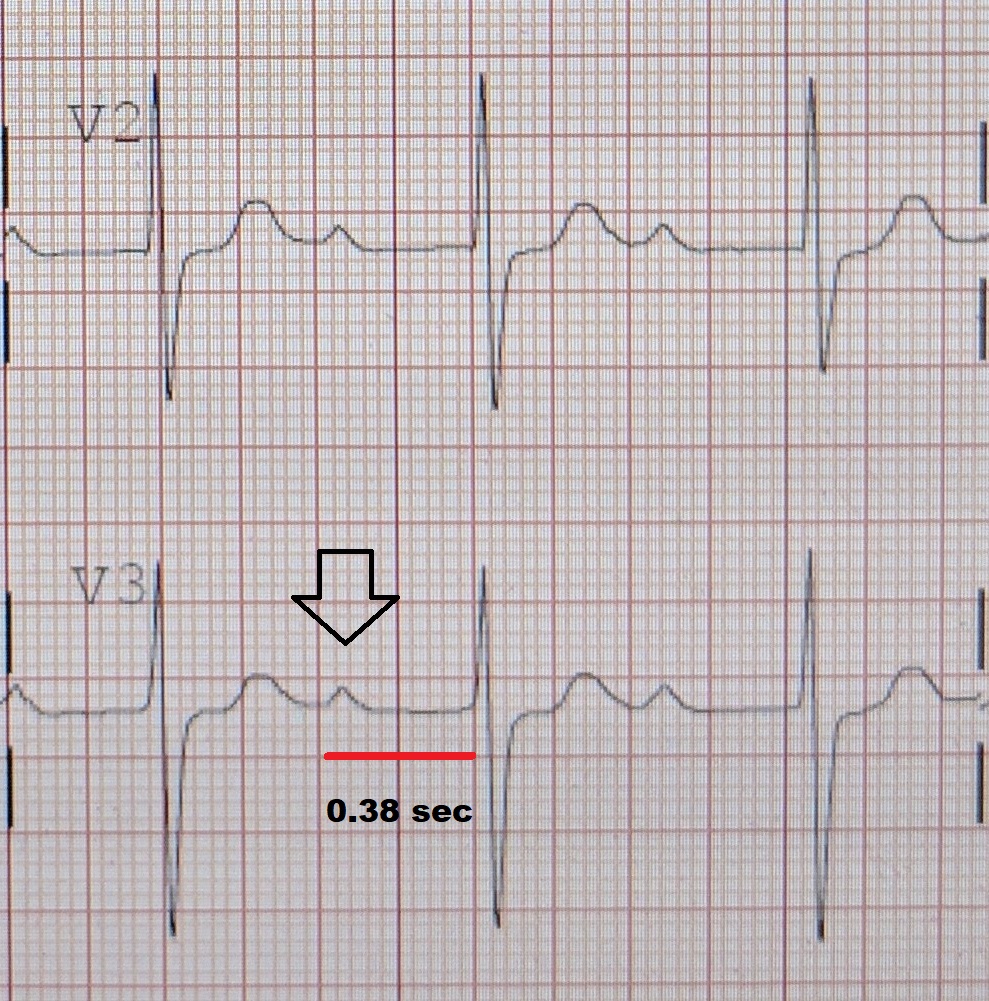
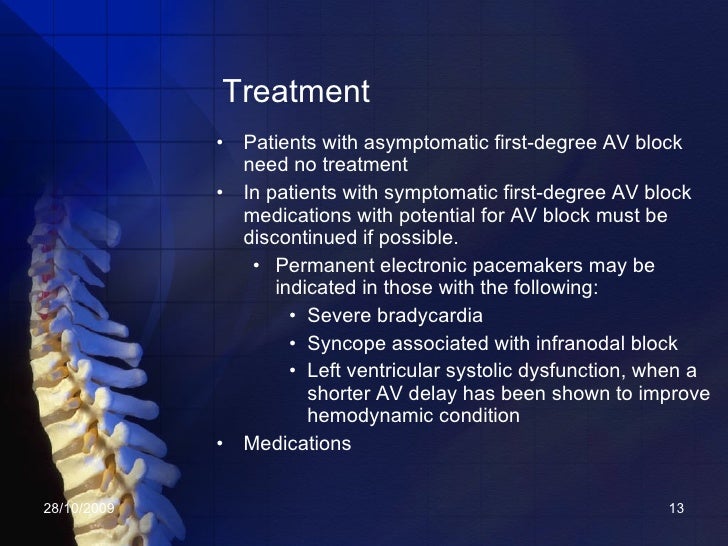
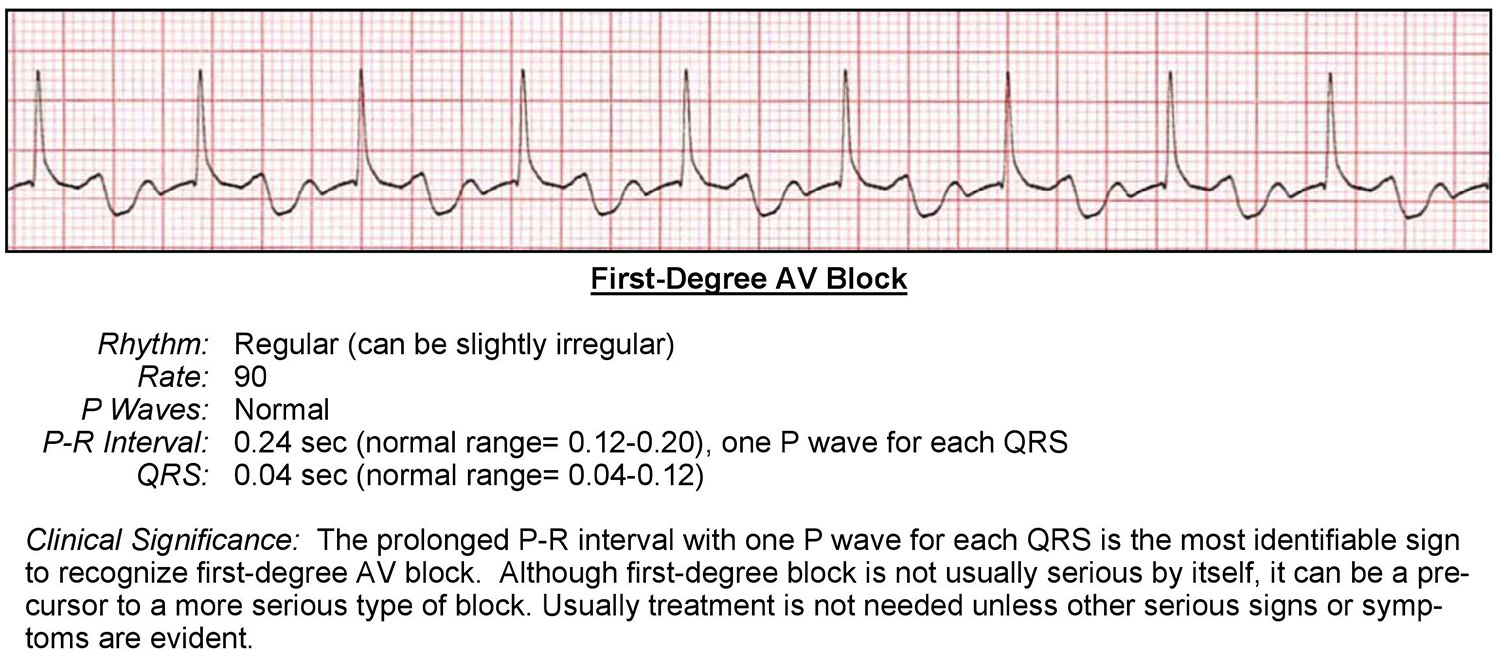
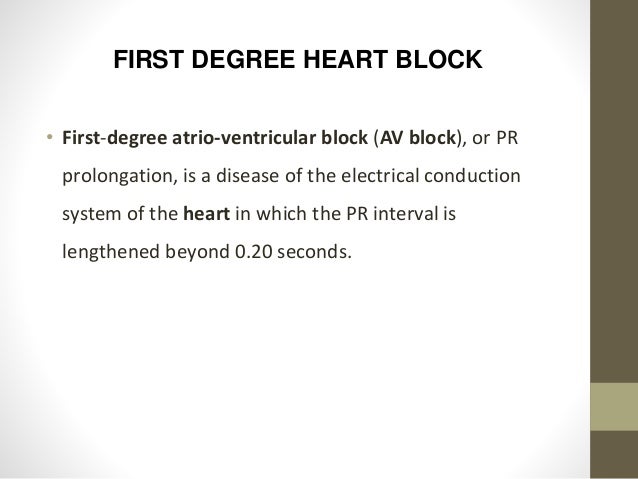
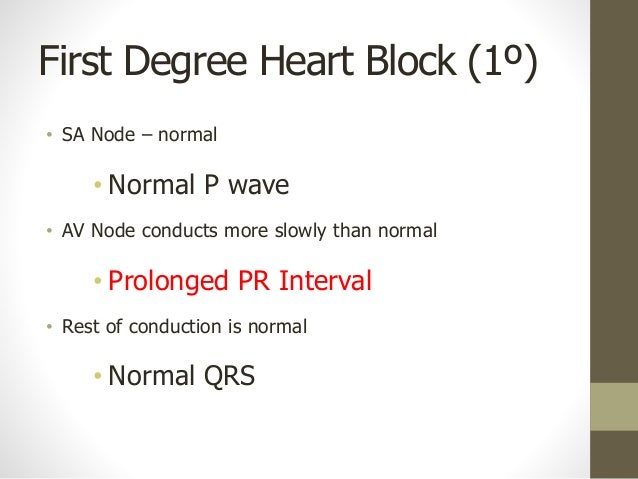
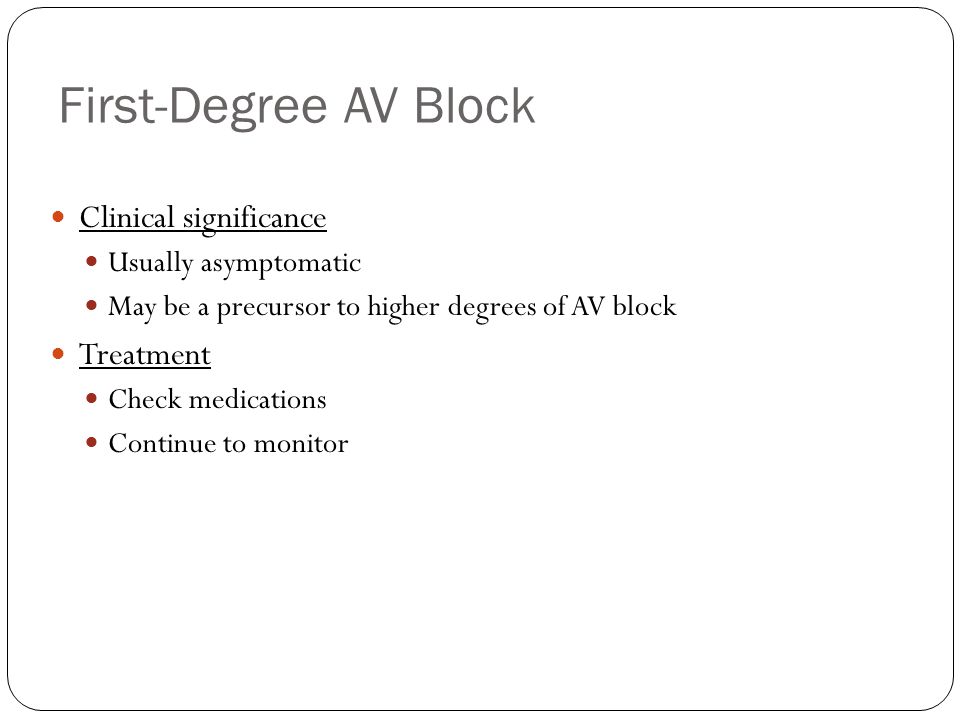
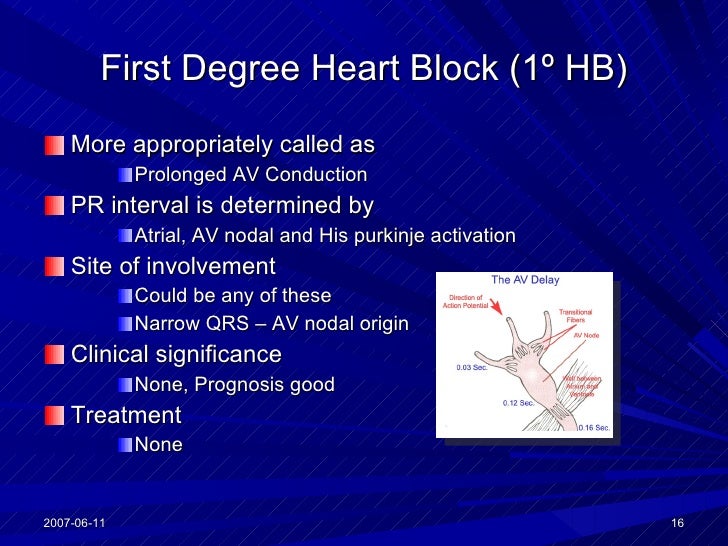

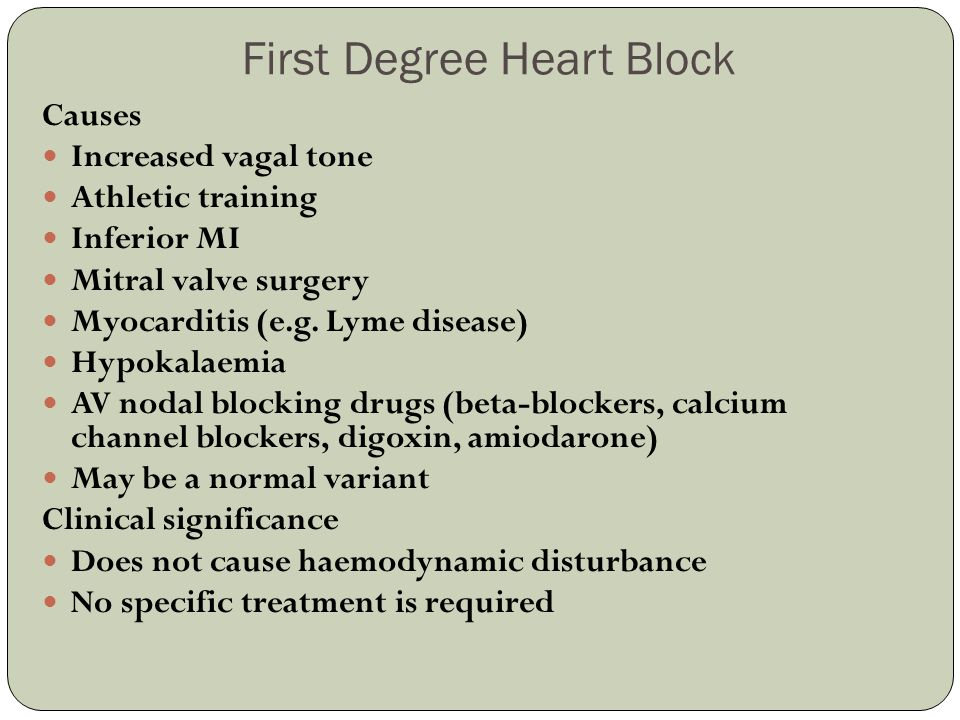

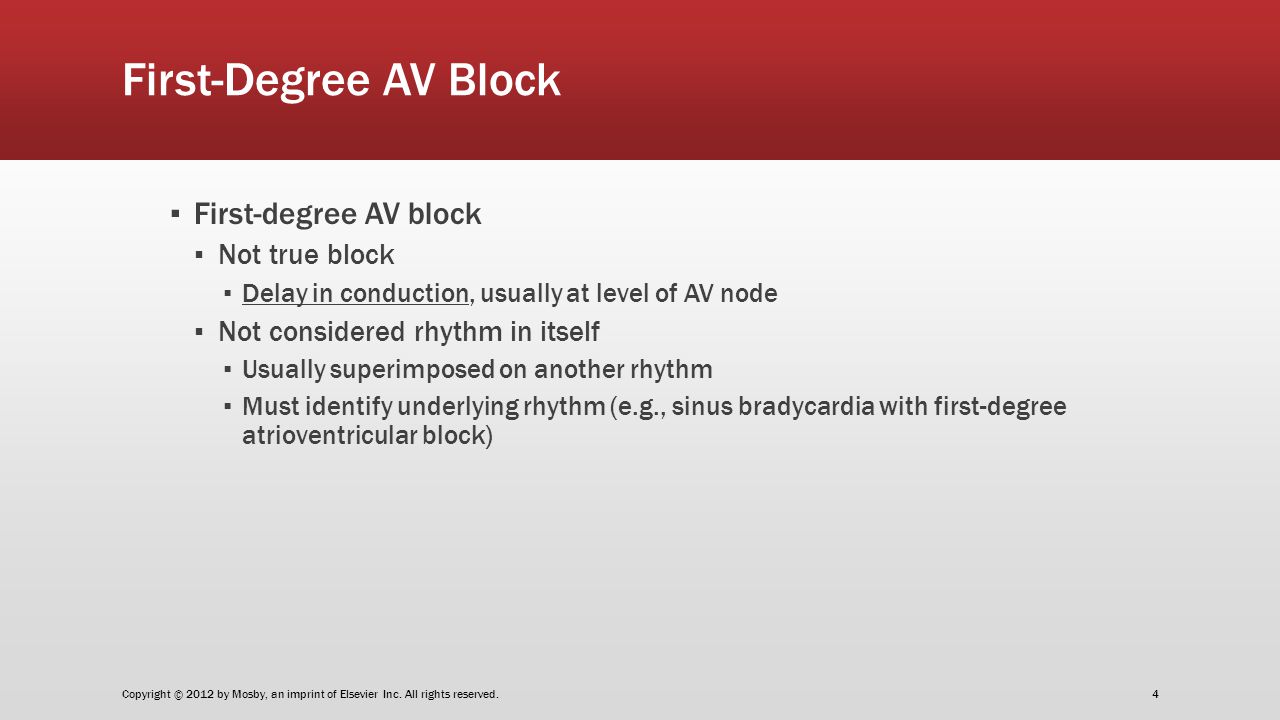

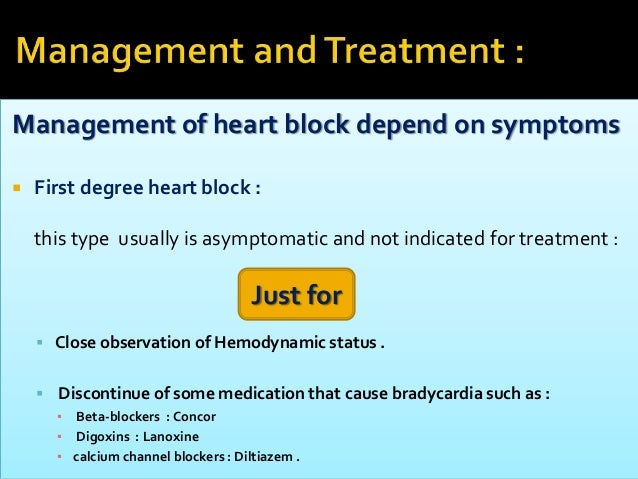



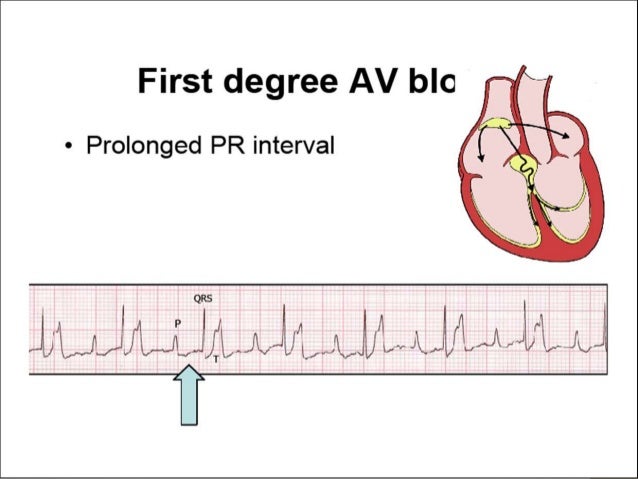









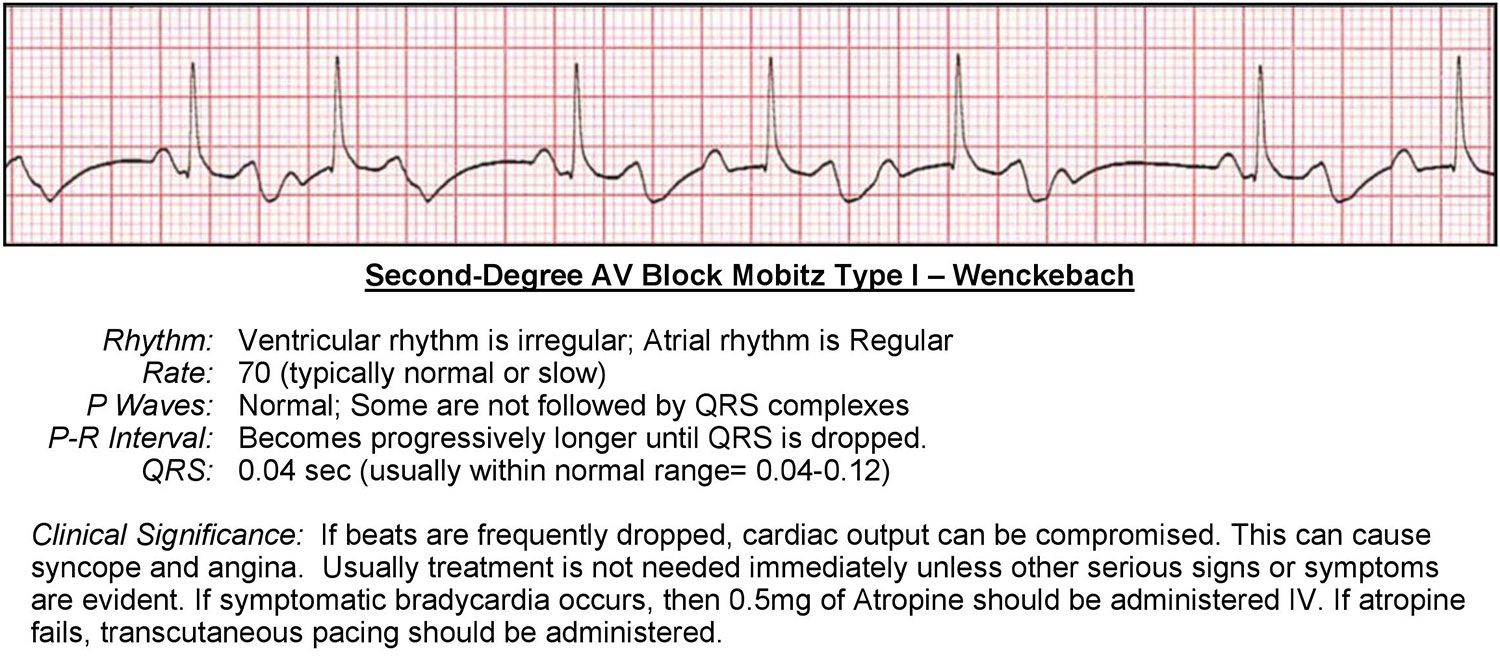

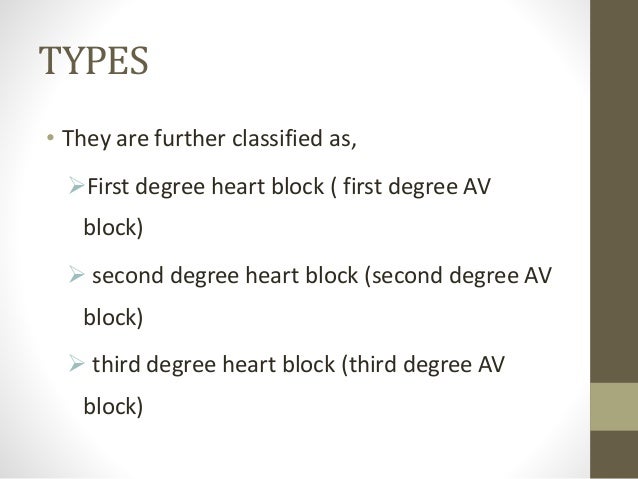

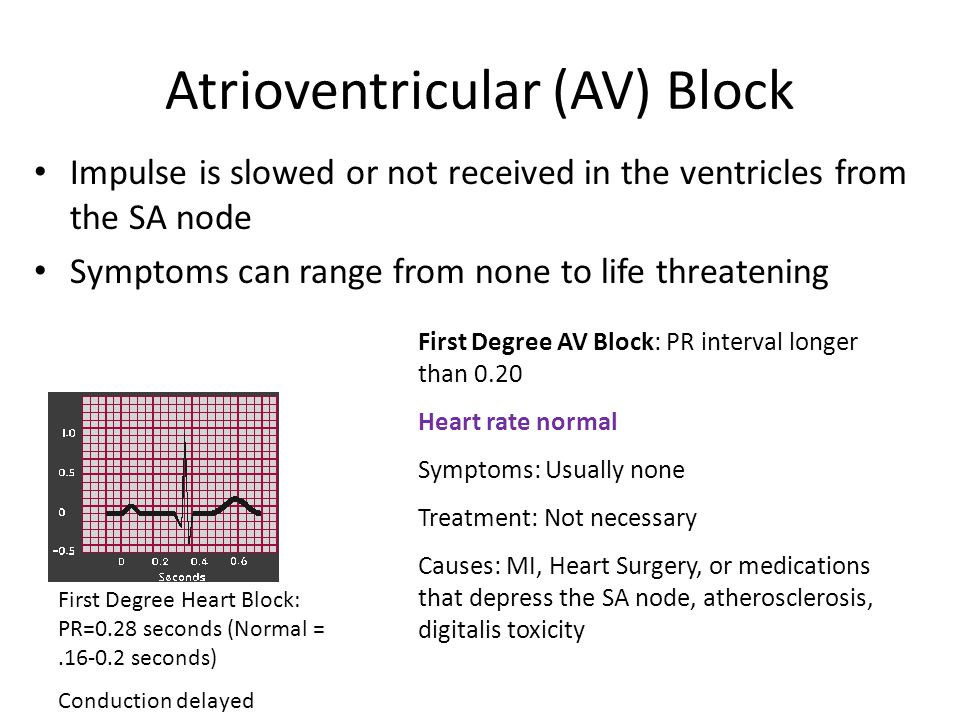

:max_bytes(150000):strip_icc()/iStock-616893490-59270be03df78cbe7eef363d.jpg)

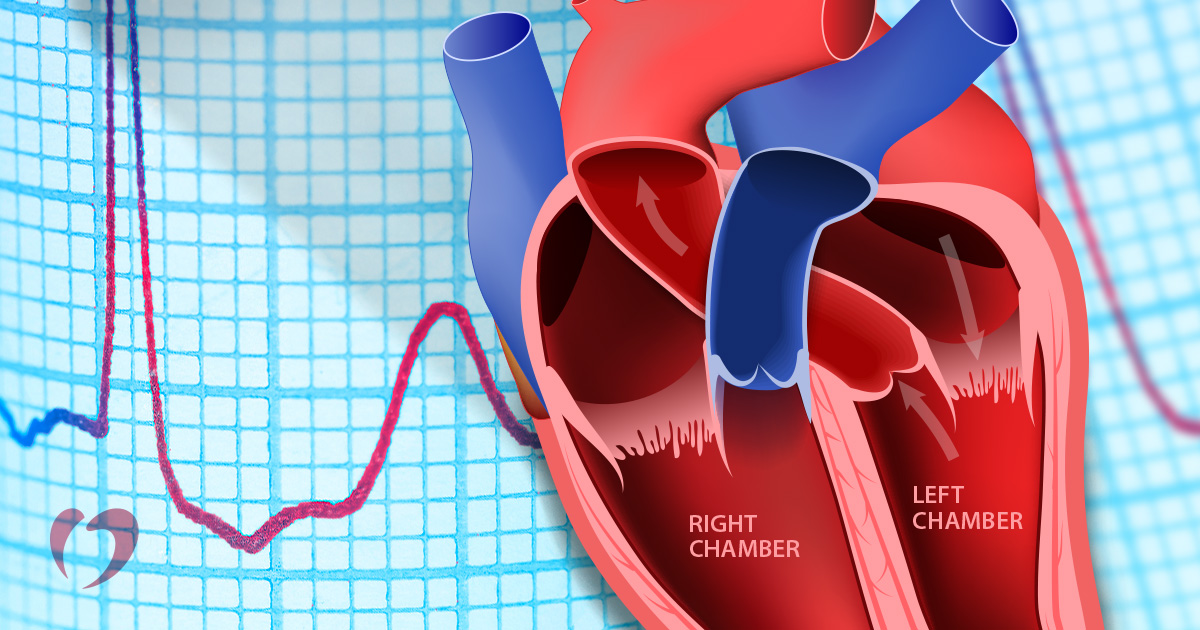










Posting Komentar untuk "Treatment For First Degree Heart Block"